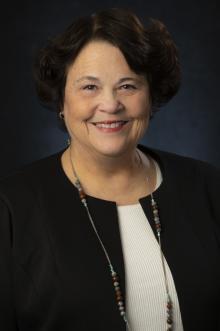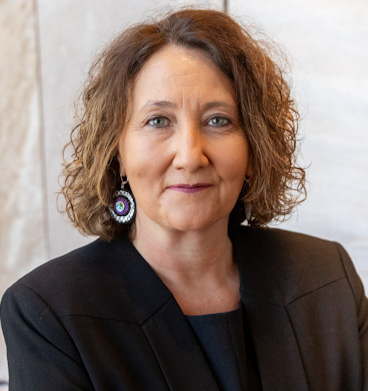Law schools examine pedagogy as NextGen bar exam looms

“I have worked with schools in the first, second, third and fourth tier,” says Susannah Pollvogt, principal consultant for academics and curriculum in the Law School Admission Council’s Legal Education Consulting group. “And I have schools in the first tier that are as concerned as schools in the fourth tier.” (Image from Shutterstock)
Updated: With the dawn of the NextGen bar exam approaching, some law schools are adjusting curricula to better prepare students for the test’s specific demands.
“This could be a revolutionary change in legal education,” says Wanda Temm, a professor and the director of bar services at the University of Missouri at Kansas City School of Law.
Around the country, discussions are happening about how to best prepare students for the exam, which starts its rollout in July 2026 and is set to replace the Uniform Bar Examination, which is due to sunset after the February 2028 test.
Along with moving from paper and pencils to computers, the new exam will have an added emphasis on the skills that junior attorneys need, such as research, client management and dispute resolution over memorization, says Beth Donahue, a senior assessment design specialist at the National Conference of Bar Examiners.
The NextGen exam will have fewer stand-alone multiple-choice questions, and the traditional essay questions will be replaced with integrated question sets, requiring students to read and apply primary legal and factual resources to certain fact patterns under time pressure.
Those changes are inspiring some law schools to step back and reconsider how and what students are now taught throughout law school and how they are assessed.
For instance, for a skill such as client counseling, “students are now not assessed in law school the way they will be assessed on NextGen,” Temm says. “It’s not like the student is going to do a simulated interview.”
In response to the exam’s changes, the University of Missouri at Kansas City School of Law is developing a new course for 2Ls, tentatively called Learning Skills 3, which includes reviewing NextGen-style questions, plus foundational skills, she adds.
The course, scheduled for the second semester of the 2024-2025 academic year, will be “team taught” by five different professors, each taking two weeks to dive deeply into their subject area, Temm says.
“One person would do the client intake and interviewing; another would do fact investigation, and [another] one would do negotiations, and our librarians are on board are on board to do our advanced legal research,” she adds. “And then we would also have a writing component.”
 “This could be a revolutionary change in legal education,” says Wanda Temm, a professor and the director of bar services at the University of Missouri at Kansas City School of Law. (Photo by Janet Rogers/University of Missouri at Kansas City School of Law)
“This could be a revolutionary change in legal education,” says Wanda Temm, a professor and the director of bar services at the University of Missouri at Kansas City School of Law. (Photo by Janet Rogers/University of Missouri at Kansas City School of Law)
Law school moves
Some schools are bringing in help. Currently, the Law School Admission Council is working as a consultant to four law schools, with four more inquiring about their services, to map out current curricula against NextGen assessment methods, tested subjects and skills.
“I have worked with schools in the first, second, third and fourth tier,” says Susannah Pollvogt, principal consultant for academics and curriculum in the LSAC’s Legal Education Consulting group. “And I have schools in the first tier that are as concerned as schools in the fourth tier.”
Along with working with the Legal Education Consulting group, the Arizona State University Sandra Day O’Connor College of Law is hiring a director of bar exam success, a new position focused on helping faculty and students in the transition to the NextGen exam, says Stacy Leeds, dean of the Arizona law school. The director will work alongside the director of academic success to assist students, Leeds adds.
“We’ll have someone who can drill down with each of our subject-matter experts on what type of subjects are tested the most, what are the ways that we test performance in the law school, and do those methods prepare our students for the way that they’ll be tested on the bar exam,” Leeds says.
Within schools, faculty-wide discussions are taking place to check current curriculum against NextGen-style testing to ensure that students receive repeated exposure to basic skills throughout law school, professors say.
“The new style of questions are going to take some critical reading skills to really understand what the problem is,” Temm says. “It is still assessing analysis—there’s no doubt about that—but it’s just assessing it in a different way.”
Faculty reaction to changing curricula has been mixed, she says.
“Some professors are innovative in their teaching and are looking for new ideas. Others are satisfied with how they teach their courses, and they feel they prepare students for the bar exam,” Temm says.
 “We’re all trying to learn as much as we can, but this is going to be quick turnaround,” says Stacy Leeds, dean of the Arizona State University Sandra Day O’Connor College of Law. (Photo by Tabbs Mosier/Arizona State University)
“We’re all trying to learn as much as we can, but this is going to be quick turnaround,” says Stacy Leeds, dean of the Arizona State University Sandra Day O’Connor College of Law. (Photo by Tabbs Mosier/Arizona State University)
Trading notes
Law school deans privately are trading notes.
“Deans are a lot more collaborative than people think,” Leeds adds. “We’re definitely talking with each other.”
Professors are helping out educators at other law schools too. Law schools in the six jurisdictions committed to using the NextGen exam in July 2026—Connecticut, Guam, Maryland, Oregon, Washington and Missouri—are feeling the extra pressure of being first, Temm says.
She notes that her law school’s current first-year students will be taking the first round of the NextGen exams, she says, and adjustments are “critically important for our current students right now.”
Temm has shared the University of Missouri at Kansas City School of Law’s NextGen plans at faculty workshops at the Texas Tech University School of Law and the University of Denver Sturm College of Law, each in a jurisdiction where the NextGen exam will launch in a later wave, she says.
“They were all energized and interested and wanting to know more, so they can know what to do in their classes as their time approaches,” she adds.
Any more questions?
As the clock keeps ticking until the new exam, law schools are eager for more sample NextGen questions than the eight multiple-choice questions, two integrated question sets, and the one performance task now provided on the NCBE site.
“There’s still not enough information about what exactly and how this is going to be tested on the bar,” Leeds says.
While the NCBE is “not here to dictate pedagogy,” Donahue says, it is in contact with law school administrators about the test. The NCBE is also working with the AccessLex Institute to develop study aids for the NextGen exam.
Recently, the NCBE included 88 schools in field testing the new nine-hour exam, Donahue says, and study aids mimicking a full exam in three-hours will be available in July, plus a full prototype of the nine-hour exam available in the fall.
Still, there is apprehension.
“We’re all trying to learn as much as we can, but this is going to be quick turnaround,” Leeds says.
Updated April 17 at 7:21 a.m. to correct the number of schools that participated in recent field testing.



